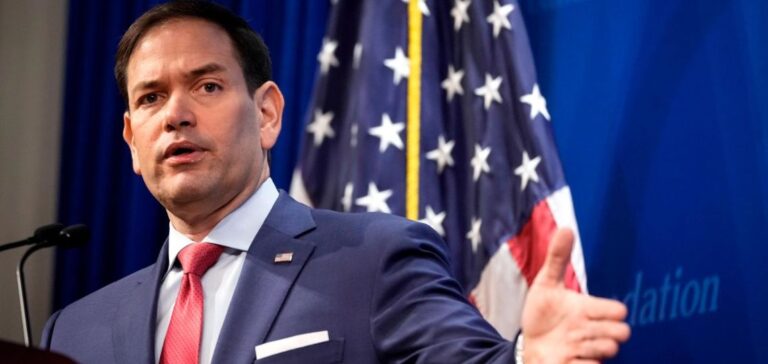US Secretary of State Marco Rubio has begun an official visit to the Caribbean focused on energy security and regional tensions, with an initial stop in Jamaica to attend a meeting of the Caribbean Community (Caricom). This trip reflects the American administration’s stated intention to deepen diplomatic engagement across the Americas. Rubio’s itinerary also includes visits to Guyana and Suriname, according to the State Department.
Reducing dependence on Venezuelan oil
A central topic of discussion is the reduction of Caribbean island states’ energy dependence on Venezuelan oil. In parallel, Washington is continuing its economic sanctions strategy against Caracas, whose economy is heavily reliant on hydrocarbon exports. In line with this approach, US President Donald Trump announced that, from April 2, a 25% tariff would be imposed on all goods entering the United States from countries purchasing Venezuelan gas or oil.
The United States is also seeking to foster energy security cooperation with Guyana, as the country remains locked in a territorial dispute with Venezuela over the Essequibo region, an area rich in oil resources. Since ExxonMobil’s significant discoveries in 2015, the dispute has intensified, granting Guyana one of the highest per capita crude oil reserve ratios globally.
Private sector concerns in the Caribbean
The prospect of new US tariffs on Chinese merchant vessels has raised serious concern within the Caribbean private sector. Patrick Antoine, representative of the Caribbean Private Sector Organisation (CPSO), voiced his concerns from Georgetown regarding the potential inflationary impact. According to his estimates, costs could rise by 30% across the region, as Chinese-built vessels are crucial for short-distance maritime transport within Caricom. The organisation aims to use Rubio’s visit to advocate for a reconsideration of the proposed trade measures.
Security instability in Haiti
The Haitian situation will also feature prominently in discussions. The country’s worsening crisis, characterised by the growing control of armed gangs and entrenched political instability, was described as “disastrous” by Mauricio Claver-Carone, Special Envoy for Latin America. The United States is preparing a new strategy to support the Haitian National Police, in coordination with Caribbean partners.
During his stop in Kingston, Marco Rubio is scheduled to meet Fritz Jean, president of Haiti’s transitional council. Despite the partial deployment of the Kenya-led Multinational Security Mission (MMAS), violence continues to plague the country, increasingly alarming both Caricom and Washington.






















